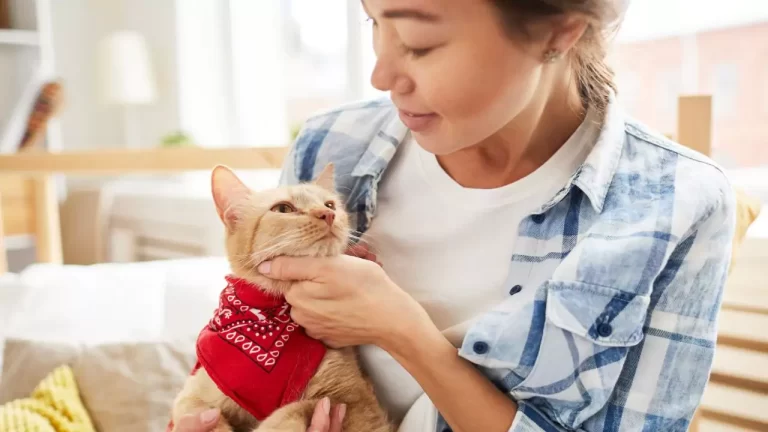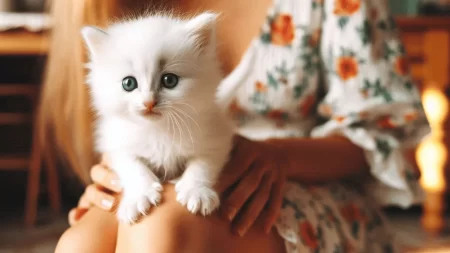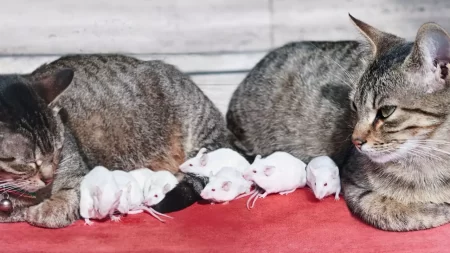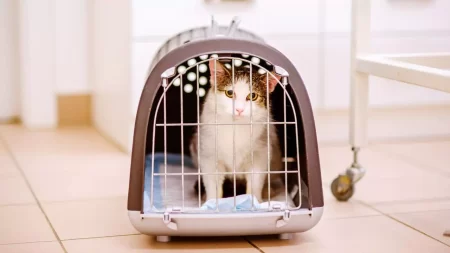Yes, your cat may know when you’re sad. Cats are highly attuned to their owners’ moods and emotions, and they can sense when something is wrong.
Cats are observant and intuitive animals, and they may pick up on subtle cues from your body language, facial expressions, voice tone, and behavior. They may also smell changes in your hormones or pheromones that indicate your emotional state.
How can you tell if your cat knows when you’re sad? Here are some signs that your cat may be aware of your feelings and how they may react to them.
Signs Your Cat Knows When You’re Sad
- Spending more time around you. Some cats may become more clingy and affectionate when they sense that you’re sad. They may follow you around, sit on your lap, rub against you, or lick you. They may also sleep next to you or on your bed more often. These are ways of showing their love and loyalty to you, and also of providing warmth and comfort.
- Offering comfort. Some cats may try to comfort you by purring, nuzzling, or head-butting you. They may also bring you gifts, such as toys, mice, or other objects. These are signs of empathy and generosity, and they may also be trying to cheer you up or make you feel better.
- Ignoring or avoiding you. Some cats may react differently to your sadness and may distance themselves from you. They may hide under the bed, in a closet, or in another room. They may also act aloof, indifferent, or annoyed by your presence. These are signs of stress or anxiety, and they may be overwhelmed by your emotions or unsure of how to deal with them.
- Trying to distract you. Some cats may try to distract you from your sadness by initiating play, chasing a toy, or doing something funny or cute. They may also demand attention, food, or treats from you. These are signs of curiosity and intelligence, and they may be trying to lighten the mood or make you smile.
Do Cats Know When Others Are Sad?
Cats can also sense emotions in other people, not just their owners. They may react differently depending on how well they know the person and how comfortable they are with them. For example:
- If a stranger is sad, a cat may ignore them, avoid them, or even hiss at them. This is because the cat does not have a bond with the person and may perceive them as a threat or an intruder.
- If a friend or a family member is sad, a cat may approach them cautiously, sniff them, or rub against them. This is because the cat has some familiarity with the person and may want to investigate what is wrong with them or offer some support.
- If another cat is sad, a cat may groom them, cuddle with them, or play with them. This is because the cat has a social relationship with the other cat and may want to comfort them or cheer them up.
The Emotional Bond Between Cats and Their Owners
Cats have a strong emotional connection with their owners, and they can help humans through difficult times. Cats can provide comfort and support by being loyal companions, reducing stress levels, lowering blood pressure, improving mood, and enhancing well-being.
If you’re feeling sad, don’t hesitate to reach out to your cat for some love and cuddles. Your cat may know how you feel and may want to help you feel better. Remember that your cat loves you unconditionally and will always be there for you.







